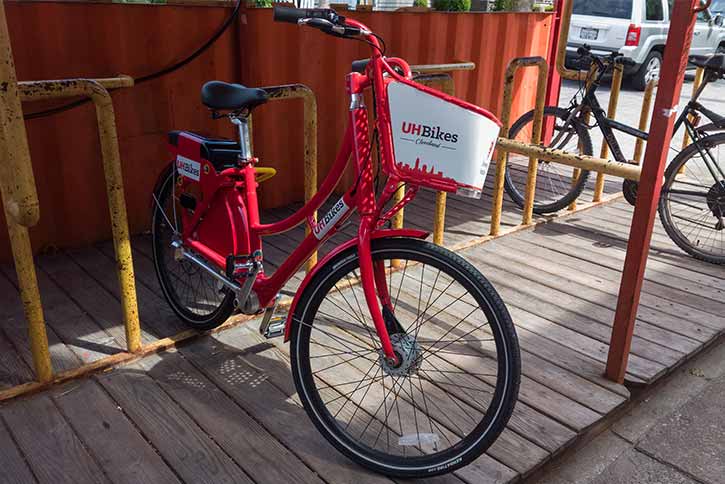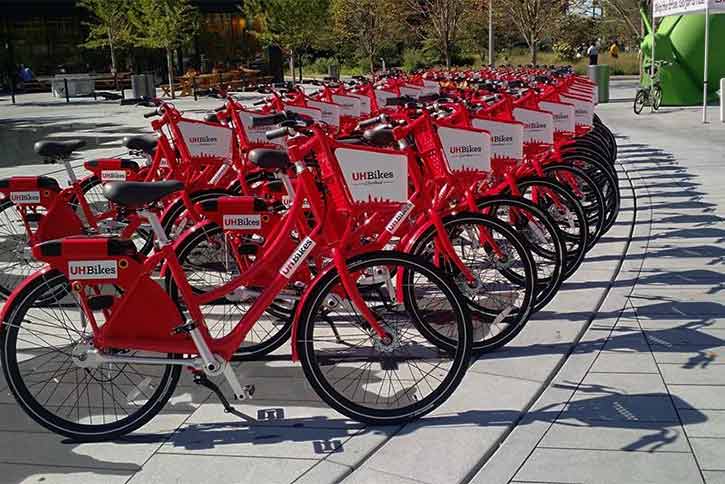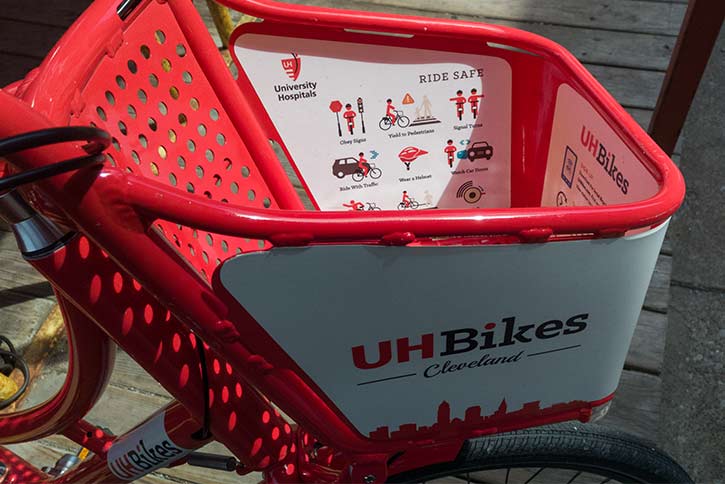UH Bikes to roll onto Lorain Avenue this week
As UH Bikes marks the end of its second bike sharing program cycle in Cleveland this spring, the popular program is marking the milestone with a move to new offices in the Detroit Shoreway’s Antiques District at 7900 Lorain Ave.
University Hospitals first paired with CycleHop in May 2016 to introduce its bike sharing concept to Cleveland as UH Bikes. Today, the company has 29 stations with more than 250 bikes, mostly in University Circle and downtown Cleveland.
UH Bikes is expected to make the move this Thursday, March 1, into a 2,500-square-foot-space that will primarily be used for offices and bike repairs. The move provides a more permanent space for company, which has been operating out of a warehouse downtown, says CycleHop chief innovation officer John Romero.
“The warehouse was not suitable for our needs,” he says. “Ridership is as projected, but we think deployment could be larger for the area we cover.”

The space’s owner, Pete Menyhart of Menyhart Plumbing & Heating Supply Co., says he is pleased to have the company as a tenant. “We’re all about improving the neighborhood,” says Menyhart, adding that he poured a concrete ramp off the back door to make it easier to move bicycles in and out of the facility. Menyhart also ran a 90-foot copper line to create a water spigot outside the back door, and he installed a laundry tub to wash the bikes.
The Detroit Shoreway Community Development Corporation (DSCDC) facilitated the deal in its effort to bring new businesses to empty storefronts in the neighborhood. “It’s a match made in heaven,” says Adam Rosen, DSCDC director of economic development and marketing. “[UH Bikes] loved it because of the location’s proximity to downtown, and because Lorain Avenue is the next frontier [in cycling].”
By "next frontier," Rosen is referring to plans for the Lorain Avenue streetscape and protected bike lanes. Calling the planned two-way cycle track “kind of like the Health Line, but amplified,” he says he hopes that having UH Bikes in the neighborhood will encourage future expansion of the bike rental stations on the Detroit Shoreway. (Currently, most of the UH Bikes stations that already exist in the Detroit Shoreway area are just docking stations, as opposed to rental stations, according to Romero.)
“Obviously, the next step for them was the Near West Side,” Rosen says. “For us, it’s about them planting their flag here.”
Romero says CycleHop is definitely considering expansion to its Cleveland service—with an eventual goal of 50 stations and 350 to 500 bikes—but "it’s been accessibility to assets that becomes the deterrent.” In the meantime, CycleHop will work with DSCDC to expand in the neighborhood.
“We’ll look at the area,” he says. “Every location has to be vetted, with consensus from the local businesses.” He adds that University Hospitals has been a “tremendous partner” in Cleveland, but they are always looking for additional sponsors at all levels.
However, Romero teases that their expansion may go beyond just bicycles. “We’re looking at developing new modes of transportation and a shared mobility platform,” he says, citing the sit-down and standing electric scooters as the next generation in transportation sharing. “The next wave of bike sharing is going to be electric. When we say, ‘expand the fleet,’ maybe we’ll upgrade in that it will be a mixed fleet.”



